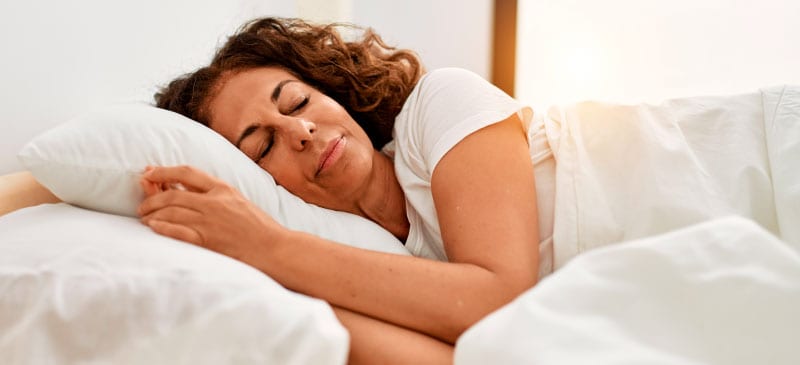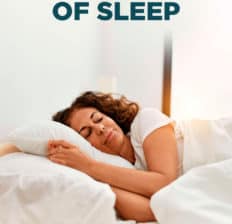This Dr. Axe content is medically reviewed or fact checked to ensure factually accurate information.
With strict editorial sourcing guidelines, we only link to academic research institutions, reputable media sites and, when research is available, medically peer-reviewed studies. Note that the numbers in parentheses (1, 2, etc.) are clickable links to these studies.
The information in our articles is NOT intended to replace a one-on-one relationship with a qualified health care professional and is not intended as medical advice.
This article is based on scientific evidence, written by experts and fact checked by our trained editorial staff. Note that the numbers in parentheses (1, 2, etc.) are clickable links to medically peer-reviewed studies.
Our team includes licensed nutritionists and dietitians, certified health education specialists, as well as certified strength and conditioning specialists, personal trainers and corrective exercise specialists. Our team aims to be not only thorough with its research, but also objective and unbiased.
The information in our articles is NOT intended to replace a one-on-one relationship with a qualified health care professional and is not intended as medical advice.
Researchers Try to Nail Down Ideal Amount of Sleep
August 10, 2022

One of the most underrated aspects of health is sleep despite the fact that research shows over and over again how vital getting the proper amount of sleep is to reach optimal health. Conversely, sleep deprivation is a serious issue that is tied to many health problems, including increased risk of chronic diseases, negative effects on mood and cognition, and so much more. So what is the ideal amount of sleep to help stave off these issues and help you operate at full speed?
That’s what a team of researchers of sought to find out in a 2022 study published in Nature Aging, and it turns out they were able to determine a recommended ideal amount of sleep for middle-aged and older adults.
Study Findings: Ideal Sleep Number for Middle, Old Age
Utilizing data from the UK Biobank, a host of Chinese and U.K. researchers from Fudan University’s Institute of Science and Technology for Brain-Inspired Intelligence in Shanghai sought to determine the ideal amount of sleep to help protect cognition and mental health. Analyzing the more than 500,000 participants in the UK Biobank health study ages 38 to 73, the researchers found that seven hours of sleep among this age group was the ideal amount of sleep to support cognition and mental health.
While the study authors note this is a nonlinear link, the data showed that participants who slept less than seven hours a night and those who slept more than that per night seemed to have more difficulty learning and remembering new things, solving problems and making decisions, and paying attention. In addition, they reported experiencing more symptoms of depression and anxiety, along with worse overall well-being.
The study authors noted, “We found a beneficial association with cognitive function and mental health with a sleep duration of approximately 7 h in a middle-aged to older adult population.”
They concluded:
… nonlinear associations between sleep duration and mental health, cognitive function and brain structure were found in a large cohort of middle-aged to older participants from the UK Biobank. The most significant brain structures were found to include the precentral cortex, the lateral orbitofrontal cortex and the hippocampus. Given the role of the hippocampus in memory processes and in Alzheimer’s disease, the nonlinear association between sleep duration and this brain region is of particular importance. Furthermore, baseline non-optimal sleep duration was significantly associated with decreased cognitive function and increased psychiatric symptoms on follow up. Our findings have emphasized the importance of sleep regulation for cognition, mental health and well-being of adults. In addition, we identified a possible unified pathway that includes genetics and brain mechanisms.
While these results show that seven hours of sleep appears to be the sweet spot for optimal mental and brain health, the researchers emphasized the results exhibit a nonlinear association, not necessary a direct connection.
“While we can’t say conclusively that too little or too much sleep causes cognitive problems, our analysis looking at individuals over a longer period of time appears to support this idea,”Jianfeng Feng, a professor at China’s Fudan University and an author of the study, said in a statement shared with CNN. “But the reasons why older people have poorer sleep appear to be complex, influenced by a combination of our genetic makeup and the structure of our brains.”
What It Means
This study provides evidence that the ideal amount of sleep seems to benefit cognitive and mental health, which isn’t surprising, and the recommended seven hours of sleep seems to make sense given that our ancestors slept a little under 6.5 hours per night, according to research from UCLA. Yes, that’s less than seven hours per night, but when taking into consideration the extremely different lifestyles today compared to hundreds of years ago, the slight difference makes sense.
However, seven hours may not necessarily be the ideal target for everyone. Some people function best with a little more or a little less sleep, as just like many other aspects of health, it really can depend on the individual.
Still, it’s definitely a good idea to aim for seven to nine hours of sleep per night, and it’s a good idea to track your focus and mood and compare it with the amount of sleep you got that day. This could help you determine the ideal amount of sleep for you.
Tips for Better Sleep
To support optimal sleep and boost brain health, try natural sleep aids, such as:
- sleep-promoting foods, such as those with tryptophan
- calcium
- magnesium
- essential oils for sleep, including bergamot and lavender
- passion flower
- valerian root
- St. John’s wort
You can also try sleep meditation and take melatonin, but be careful not to take melatonin every night for a long period of time. Research shows that taking too much melatonin can be risky.
Other ways to promote better sleep include:
- managing stress
- avoiding blue light at night
- increasing exposure to natural light during the daytime
- exercising
- adjusting your diet
- creating a bedtime routine
Conclusion
- Sleep deprivation and oversleeping can play a part in a host of health issues, particularly on brain health.
- A 2022 study looked to identify the ideal amount of sleep to support cognition, mental health and overall well-being. Examining U.K. data from a health study involving adults ages 38 to 73, researchers found that seven hours of sleep appeared to be the sweet spot for optimal health.
- To help reach the ideal amount of sleep and keep the brain in tip-top shape, utilize natural sleep aids, set a bedtime routine and make sure you get the ideal amount of sleep for you, with seven hours a good target based on research.




